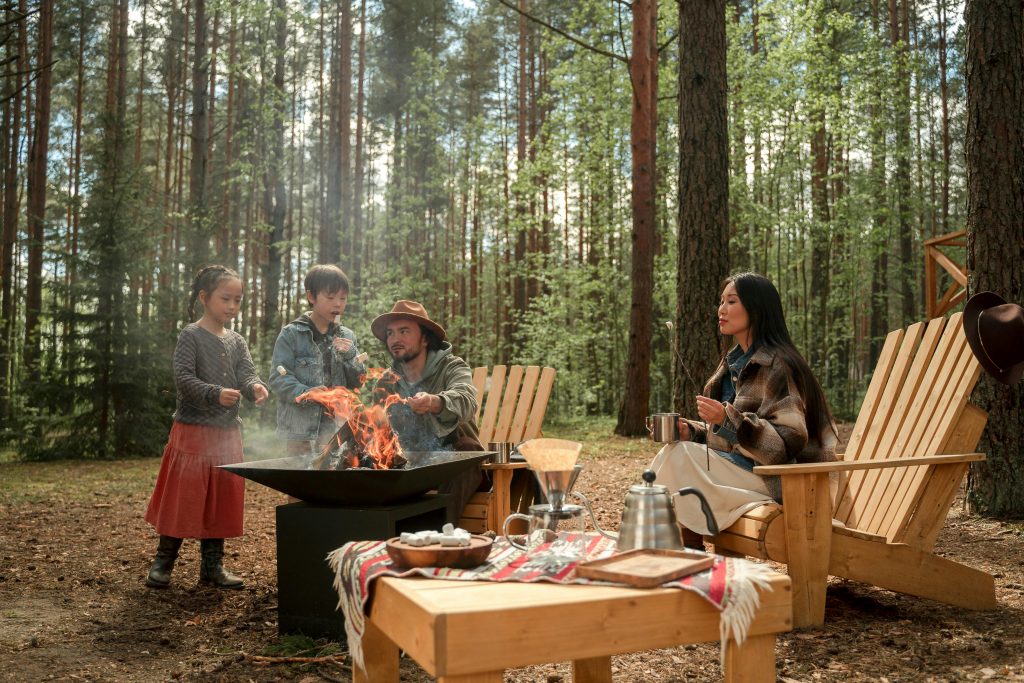- Explore nature through bird watching, learning about species and migration patterns, and appreciating the natural beauty of birds.
- Engage in a nature scavenger hunt to discover and discuss various plants, animals, and their ecological roles.
- Enhance hiking experiences by identifying plant species using field guides or apps and understanding their ecological significance.
- Visit national parks for guided tours that educate on local history, geology, and wildlife, offering adventurous outings.
Exploring nature is not only a fun way to spend time with your family, but it also provides countless opportunities for learning and growth. From identifying different plant species to observing animal behavior, there is so much to discover in the great outdoors. This blog will highlight educational nature adventures that the whole family can learn from. So pack your bags, grab your hiking shoes, and get ready for an unforgettable experience in nature!
Bird Watching

Bird watching is a popular activity that can be enjoyed by people of all ages. Grab a pair of binoculars and head to a local park or nature reserve to observe different bird species in their natural habitat. You can learn about bird migration patterns and nesting habits and even practice identifying birds by their calls and markings. Bird watching is a great way to connect with nature and appreciate the beauty of our feathered friends.
Nature Scavenger Hunt
A nature scavenger hunt is a fun and interactive way to explore the outdoors while learning about different plants, animals, and ecosystems. Create a list of items to find like pinecones, colored stones, animal tracks, or specific plant species. As you search for each item, take the time to discuss its importance in the ecosystem and how it contributes to the overall balance of nature. This hands-on activity is perfect for engaging children in learning about the environment.
Plant Identification Hike
Turn your next hike into a plant identification adventure by learning how to recognize different plant species along the trail. Bring along a field guide or use a plant identification app on your phone to help you identify trees, flowers, shrubs, and other vegetation native to the area. Take note of each plant’s characteristics, such as leaf shape, flower color, and growth pattern, as you learn more about their ecological roles and significance in the ecosystem.
National Park Tours
Many national parks offer guided tours led by park rangers or volunteers, providing an excellent opportunity to learn about the history, geology, and wildlife of the area. The Zion National Park UTV tour, for example, takes visitors on a thrilling ride through the park while pointing out important features and facts about the environment. This UTV tour is not only educational but also a fun and unique way to experience nature. It’s an excellent activity for families with older children who are looking for a more adventurous outing.
Preparing for Your Trip: Additional Tips

Before heading out on your outdoor adventure with the whole family, there are certain things you can do to ensure a safe and enjoyable experience. Here are four additional tips to keep in mind:
Plan Your Trip Ahead of Time
Planning ahead allows you to anticipate any potential challenges and prepare accordingly. Research the park you will be visiting, including its rules and regulations, weather conditions, and trail maps. This will help you pack appropriate gear and clothing, plan your route, and know what to expect.
Bring Plenty of Water and Snacks
Staying hydrated and fueled is crucial for outdoor activities, especially in warmer weather. Make sure to pack enough water for everyone and bring along snacks that are easy to eat on the go, such as trail mix, energy bars, or fruit.
Dress Appropriately
Wearing appropriate clothing is essential for a comfortable and safe outdoor experience. Choose sturdy closed-toe shoes with good traction and dress in layers so you can adjust to changing temperatures. Don’t forget to bring rain gear and sunscreen as well.
Practice Leave No Trace Principles
When spending time in nature, it’s crucial to minimize our impact on the environment. Follow Leave No Trace principles, which include properly disposing of garbage, remaining on designated trails, and respecting wildlife. This will help preserve the natural beauty of the outdoors for future generations to enjoy.
By following these additional tips, you can ensure a safe and enjoyable outdoor adventure for the whole family. Remember to always prioritize safety and respect the environment while exploring the great outdoors.
Immersing your family in nature through activities like bird watching, nature scavenger hunts, plant identification hikes, and educational tours in national parks offer both fun and learning opportunities. These adventures allow for personal growth and a deeper connection with the environment. As you prepare to step outside, remember to plan ahead, stay nourished and hydrated, dress appropriately, and practice Leave No Trace principles to ensure a fulfilling and respectful experience with nature. Embrace the beauty and lessons the great outdoors provides and create lasting memories with your loved ones.
